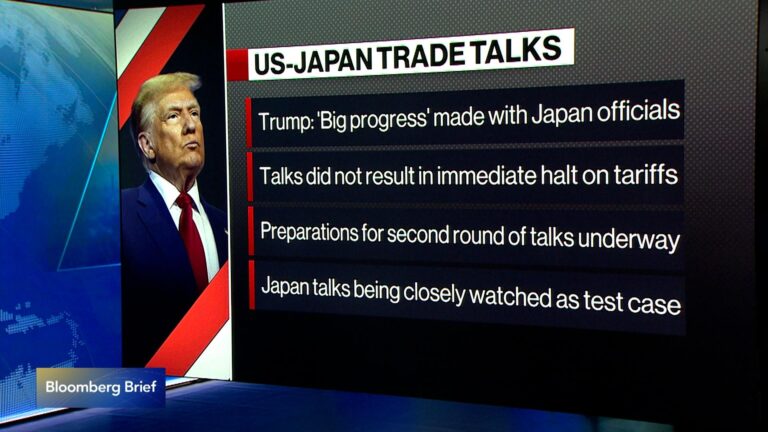Trade negotiations between the United States and Japan have hit a roadblock amid mounting tensions over agricultural exports, as the Trump administration presses Tokyo to increase rice imports. Sources close to the talks reveal that Washington’s aggressive push to open Japan’s tightly controlled rice market has complicated broader trade discussions, raising concerns about the future of U.S.-Japan economic relations. The standoff highlights the challenges facing both countries as they seek to balance domestic interests with the goal of strengthening bilateral trade ties.
US Japan Trade Negotiations Hit Roadblock Amid Rice Export Disputes
Tensions have escalated in the recent bilateral trade discussions as the Trump administration’s insistence on increasing rice exports to Japan faces stiff resistance from Tokyo officials. Japan, traditionally protective of its agricultural sector, has expressed strong concerns over potential impacts on local farmers who rely heavily on rice cultivation. Negotiators remain deadlocked, with Tokyo demanding stringent import quotas and safeguard measures that Washington views as obstructive trade barriers.
Amid these disagreements, the US delegation has proposed a compromise focused on phased rice shipments and tariff adjustments, aiming to satisfy domestic constituencies while appealing to Japan’s food security interests. However, Japanese negotiators continue to press for maintaining current protections, highlighting the cultural and economic significance of rice cultivation beyond mere commodity trade.
- US Proposal: Phased rice exports with reduced tariffs
- Japan’s Position: Strict quotas and preservation of agricultural subsidies
- Core Issue: Balancing trade liberalization with domestic farm protection
| Aspect | US View | Japan View |
|---|---|---|
| Rice Import Volume | Increase by 20% | Maintain current limits |
| Agricultural Subsidies | Reduce gradually | Keep intact |
| Tariff Rates | Lower by 10% | Minimal change |
Analyzing the Impact of Trump Administration’s Rice Export Push on Bilateral Relations
The Trump administration’s aggressive push to increase U.S. rice exports to Japan has inserted a complex dynamic into already delicate trade negotiations between the two countries. While the U.S. government aimed to open new agricultural markets and support American farmers, Japan’s longstanding protectionist policies on rice have made progress difficult, reflecting broader concerns about sovereignty and cultural preservation. This friction has manifested in stalled talks, as Tokyo resists perceived economic pressure on a staple deeply embedded in its national identity.
Key factors influencing the bilateral tension include:
- Japan’s stringent import regulations: Safeguarding domestic rice producers from foreign competition remains a priority.
- U.S. political motivations: Boosting agricultural exports forms a critical part of trade strategy under the Trump administration.
- Cultural sensitivities: Rice is more than food in Japan; it’s part of rural heritage and community stability.
| Aspect | U.S. Position | Japan’s Response |
|---|---|---|
| Import Tariffs | Advocate reduction | Maintain high tariffs |
| Market Access | Push for expanded quotas | Limit quotas to protect farmers |
| Trade Talks | Link agricultural exports to broader deals | Separate rice from overall trade agreements |
Strategic Recommendations to Revive US Japan Trade Talks and Address Agricultural Conflicts
Reinvigorating the stalled US-Japan trade negotiations demands a multi-faceted approach focused on trust-building and mutual benefit, particularly surrounding sensitive agricultural exports. Stakeholders recommend establishing a transparent dialogue platform, where both parties can openly discuss the nuances of market access and protectionist measures. Additionally, integrating third-party mediation could help bridge gaps in understanding Japan’s rice market concerns, which have been a significant roadblock. This approach emphasizes flexibility, with concessions such as phased tariff reductions coupled with safeguards for Japan’s small-scale farmers.
Furthermore, targeted strategies that promote diversification and technological collaboration in agriculture may ease tensions and foster cooperation. The US could offer expertise in agricultural technology and sustainable farming practices, aligning with Japan’s emphasis on food security and climate resilience. Key recommendations include:
- Incremental import quotas aligned with Japan’s domestic production cycles
- Joint investment programs supporting innovation in crop yield and quality
- Regular bi-national agricultural forums to facilitate ongoing stakeholder engagement
| Strategic Element | Expected Outcome |
|---|---|
| Phased Tariff Reduction | Gradual increase in US rice exports with minimal market disruption |
| Technology Sharing | Enhanced crop productivity benefiting both economies |
| Agricultural Forums | Sustained dialogue promoting trust and adaptive policies |
In Summary
As trade negotiations between the United States and Japan remain at an impasse, the Trump administration’s intensified efforts to promote American rice exports have emerged as a contentious point in discussions. With both sides under pressure to reach a mutually beneficial agreement, the outcome of these stalled talks will be closely watched by markets and policymakers alike, signaling the complexities of navigating trade relations amid shifting economic priorities.




